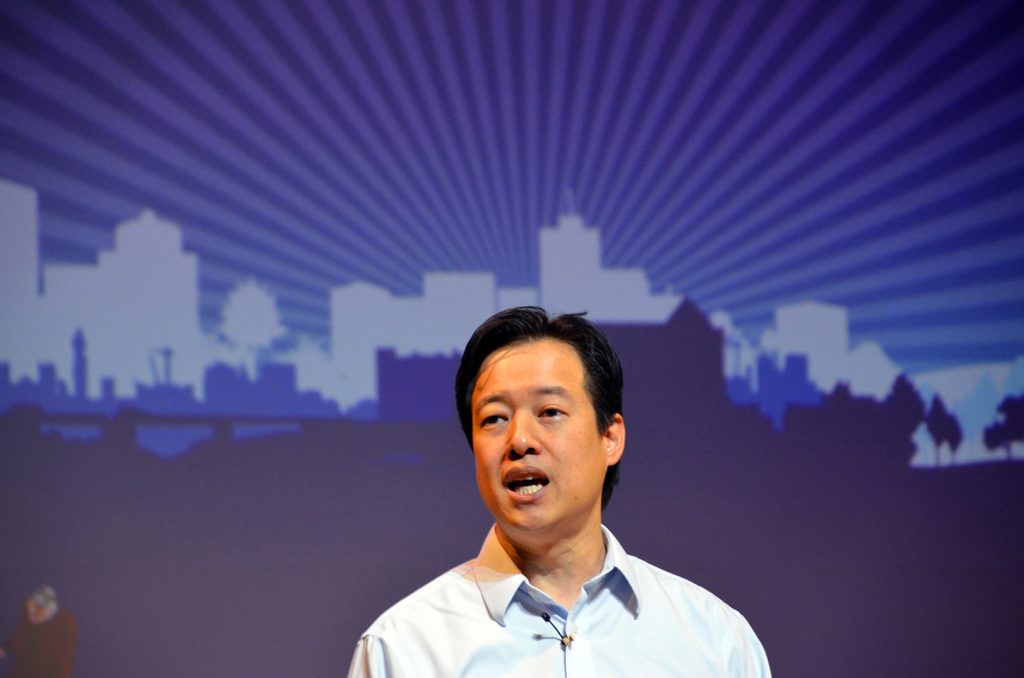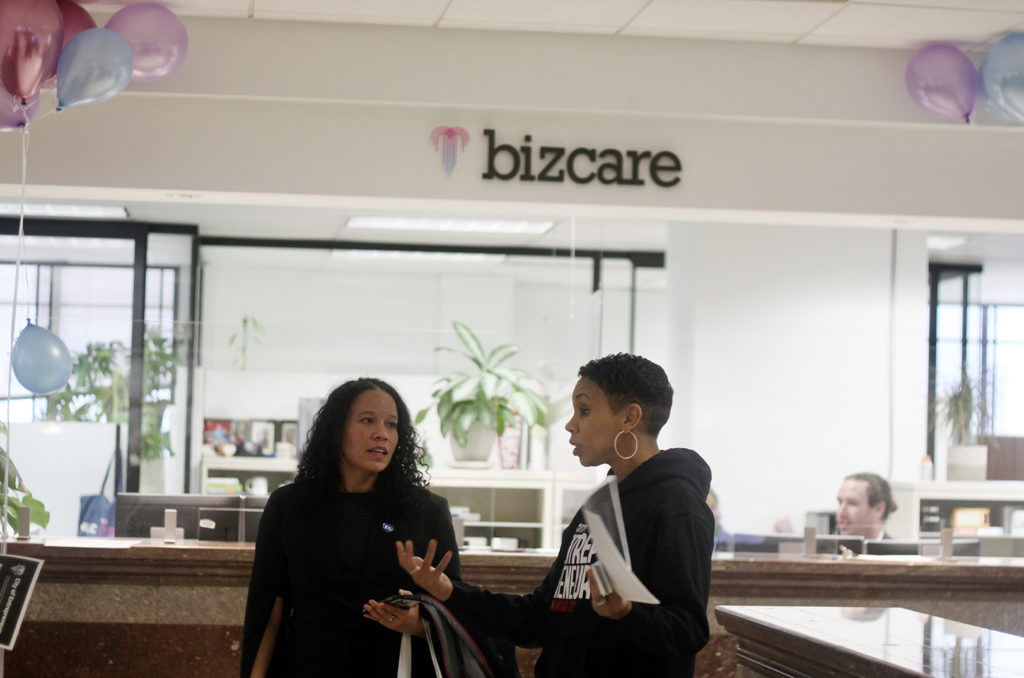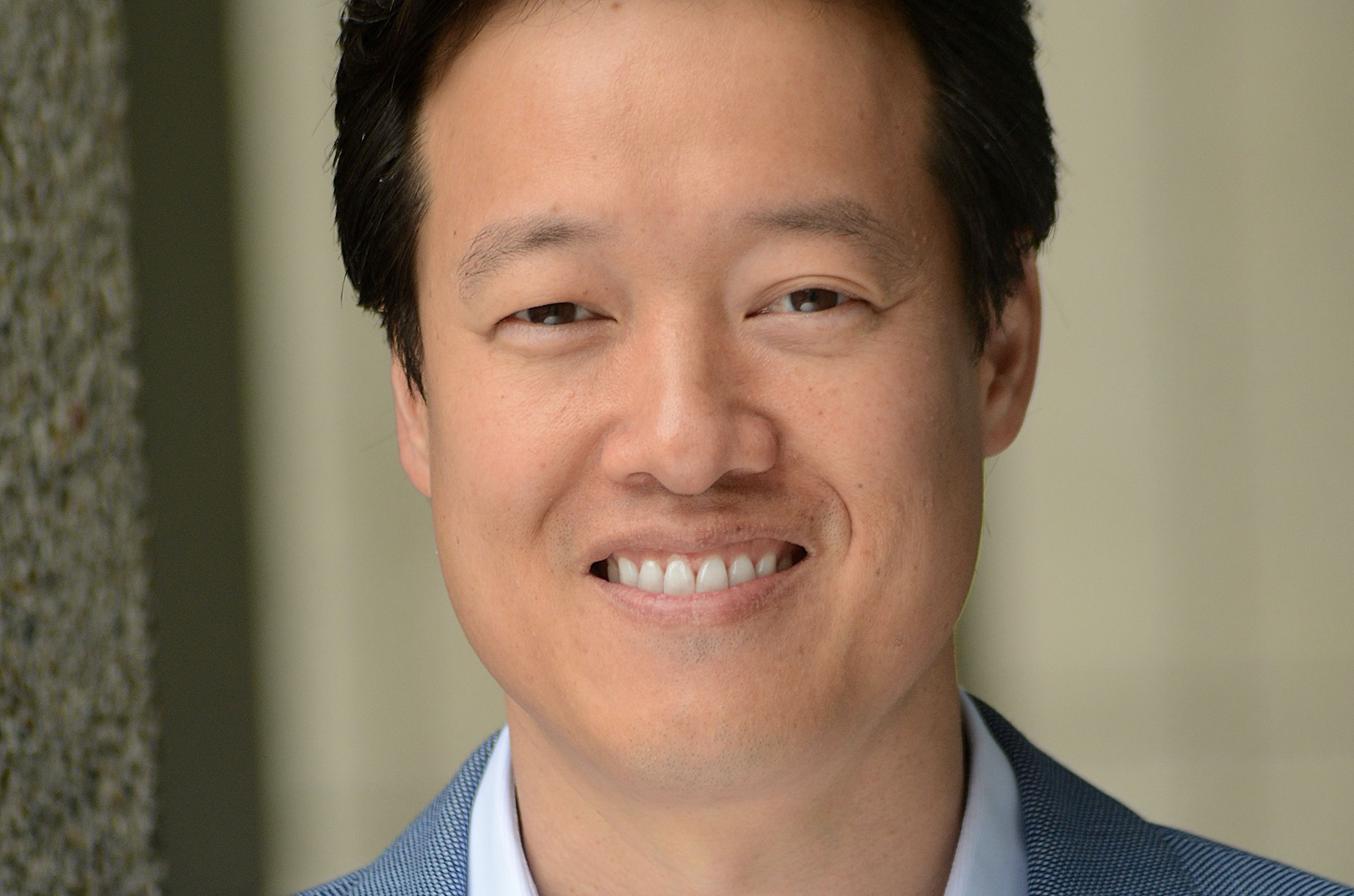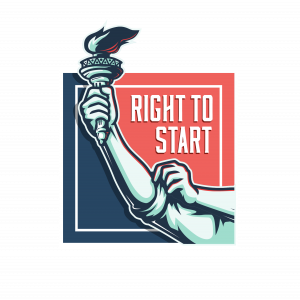A nonprofit founded by a former Kauffman Foundation executive is planning a first-of-its-kind forum on entrepreneurship with four Republican presidential candidates this Friday in the Midwest.
Right to Start is a nonpartisan organization that champions entrepreneurship as a civic priority through grassroots organizing and policy advocacy, with the goal of expanding entrepreneurial opportunity.
Friday’s forum in Cedar Rapids, Iowa, is expected to provide a platform for adding substance to the national discourse around entrepreneurship, said Victor Hwang, founder and CEO of Right to Start.
“It’s kind of this missing part of our public debate, so we wanted to elevate that and bring this issue to the forefront,” Hwang said.
Click here to read more coverage of Right to Start’s advocacy work.
“Young businesses are the source of almost all net job growth in the economy,” Hwang added. “They help raise incomes; they help fight inequality; they help lift people out of poverty. Entrepreneurs are the source of so many positive things in society, but it’s hardly ever talked about at the national level, and there hasn’t really been a lot of substance in the discourse.”
The presidential campaign is a key time to draw attention to the cause, Hwang noted, adding that Right to Start will look for opportunities to engage with other candidates during the 2024 election cycle.
The four candidates participating in this week’s forum include Larry Elder, conservative talk show host; Asa Hutchinson, former governor of Arkansas; Perry Johnson, author; and Francis Suarez, mayor of Miami; all of whom have entrepreneurial experience.
The event runs from 10 a.m. to 12:30 p.m. Friday and will feature an audience of 200 people, including entrepreneurs from Iowa, Missouri, and surrounding states.
Registration for the free event is available here. To watch a livestream, visit the Right to Start Facebook page.
Widening the conversation
Since Hwang founded Right to Start in 2020, the organization has expanded rapidly, now actively working in 28 states.
Thirteen state legislatures introduced Right to Start bills this year, according to Hwang, with Nevada passing a bill to create an office of entrepreneurship in the state.
The Missouri state legislature in 2021 was the first to introduce the Right to Start Act, which ultimately could not be reconciled after different versions of the bill passed the state house and senate, Hwang said.
Right to Start has also introduced legislation in Kansas, Oklahoma, and Arkansas, he added.
In all of the organization’s policy advocacy, Right to Start aims to shift thinking to show how so many aspects of public policy impact entrepreneurship, Hwang said.
“Entrepreneurship has usually been talked about in really narrow terms in political debate in the past, so we wanted to really expand the discussion,” he said. “Entrepreneurs are not just affected by what the SBA does. They’re affected by issues around economic development, workforce training, government contracting, health care, education, and capital access.”
Because of that, Right to Start pushes for broad policy initiatives that will lift up young businesses and “level the playing field,” Hwang said.
“The bills that we’ve been recommending to policymakers have really looked across the board,” he said. “The bill that just passed in Nevada . . . kind of changes the way that the system functions.”
“How do you expand government contracts?” Hwang continued. “How do you open up workforce training? How do you create more ways to access capital for entrepreneurs that are starting out? It really is meant to look very widely at all the different parts of the policymaking ecosystem as they affect entrepreneurs.”

Victor Hwang, Ewing Marion Kauffman Foundation, 2019 State of Entrepreneurship address; Startland News photo by Tommy Felts
‘In the American DNA’
Hwang’s expansive view of entrepreneurial policy can be traced to his time with the Kauffman Foundation, where he served as vice president of entrepreneurship from 2016 to 2019.
In that role, Hwang helped create “America’s New Business Plan,” which he described as a national agenda that expanded what is considered entrepreneurship policy.
However, Hwang said, he realized that a grassroots infrastructure was still missing, and would be necessary to move that work forward.
“Policymaking doesn’t just happen in a vacuum,” he said. “You’ve got to have boots on the ground. You’ve got to have people engaging with policymakers at the local, state, and federal levels, one-on-one.”
Right to Start provides that infrastructure to fight for entrepreneurs, Hwang said, comparing the organization’s work to how the ACLU fights to protect civil liberties.
“If you believe that everyone should have a basic right to have a level playing field to build, start, and grow their own business, then there should be an infrastructure voice that’s fighting for you,” he said. “That’s what Right to Start is. It’s a voice to lift up the needs, the concerns, and the issues of entrepreneurs from the grassroots to the grasstops.”
That message has resonated widely, Hwang added, pointing to a Right to Start nationwide poll that found almost universal support — more than 90 percent — for the importance of fair opportunity to start a business.
“We actually think of America as a nation of silent strivers,” he said. “Americans actually care about entrepreneurship a lot. They care about issues affecting entrepreneurs a lot, but they haven’t articulated it, and our leaders haven’t helped them articulate it.”
“Entrepreneurship is in the American DNA,” Hwang added. “It’s time to express that through our political voice, and to have our leaders understand that and act on it.”

Corianne Rice, Center for City Solutions at the National League of Cities, speaks with Nia Richards, KC BizCare, during the November 2022 grand opening of KC BizCare’s new offices at City Hall; photo by Nikki Overfelt Chifalu, Startland News
KC entrepreneurship as a model
Although Hwang founded Right to Start in order to push for improved entrepreneurial policy, he said Kansas City could offer a blueprint to the rest of the country.
“I talk about what’s happened in Kansas City a lot nationally as a model,” Hwang said, highlighting the work of KC BizCare in particular. “That’s very rare in the country, and a really special case, and a role model for the rest of the country.”
Hwang also praised the work being done in Kansas City to level the access gap between different parts of the city, specifically those people and neighborhoods who have historically been excluded and disenfranchised.
Beyond building on that work, Kansas Citians need to brag more, Hwang said.
“I think Kansas City should be prouder and louder about the work that’s happening,” he said. “Kansas Citians are often a bit humble, and don’t talk about this stuff as much as they should. … I think there’s a lot worth bragging about in Kansas City.”
After moving to Kansas City, Hwang said he witnessed how entrepreneurs remained focused on solving problems, which he said will always be key to the nation’s progress.
“One of the great joys I had in Kansas City was seeing how people are still hard at work, righting the wrongs, filling the gaps, and making things happen,” he said. “I think if this country is going to be saved, the Heartland is going to play a big part in it.”





































